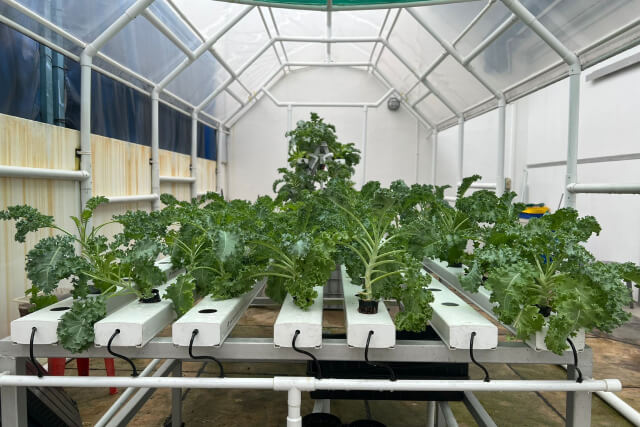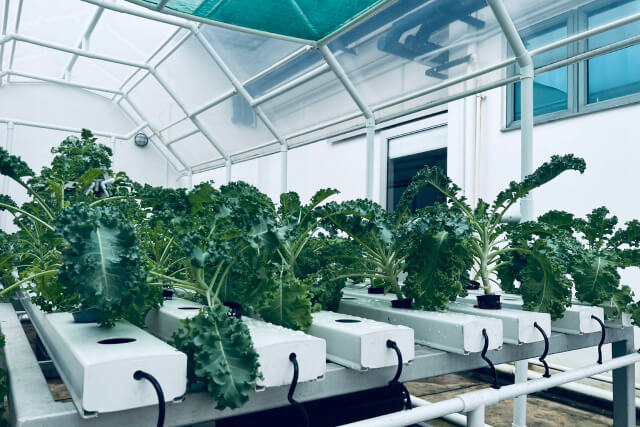
13 Sep Hydroponic Farming: How It Works and Why You Should Care
Many individuals have begun researching hydroponic farming due to the numerous conversations surrounding environmental sustainability and the future of agriculture. Although it may seem complicated, hydroponic farming is a relatively simple concept that results in healthier, more sustainable crops with significant positive effects on the ecosystem.
Green Building Masterplan
The BCA-SGBC Green Mark Scheme is a green building certification scheme and rating system developed by the Building and Construction Authority Singapore to encourage, enable, and engage industry stakeholders in adopting greener buildings. Since 2005, new buildings have been encouraged to embed sustainability into their designs and maintainability, creating healthier working and living environments.
The plan aims to deliver three key targets of “80-80-80 in 2030” by 2030. These are: 80% of buildings by Gross Floor Area to be green; 80% of new developments by GFA to be Super Low Energy buildings from 2030; and 80% improvement in energy efficiency for best-in-class green buildings by 2030.
Vicplas’ Green Initiatives
Green buildings are constructed from environmentally friendly, sustainable materials that reduce our carbon footprints. Vicplas has continuously supplied cost-effective solutions without compromising our commitment to engineering for safety and sustainability by utilising cutting-edge technology and strict quality control standards.

How It Works
Hydroponics is the process of cultivating plants in a water-nutrient solution without soil, where water, oxygen and nutrients are directly provided to the plant. By redirecting the energy, it would have expended acquiring food and water, a plant’s roots can use it to mature or produce leaves and blooms. Additionally, because hydroponic plants are not weather-dependent, they have the added advantage of requiring less room to grow and being able to be cultivated all year round.
Benefits
Hydroponic farming is a proven effective way to grow crops while making the most of our resources, producing the least waste, and causing the least environmental harm. Hydroponic farms can be located in any climate and are suitable indoors and outdoors, making them ideal for small spaces or areas with minimal sunlight. In addition, they help improve biodiversity, water quality, and reduce pollution by using fewer chemicals and less land for food production. Here are some other key advantages it provides:
- Water conservation
Hydroponics conserves water as it does not require irrigation or fertilisers. The water is recycled in the system as it is used. In addition, less water can be used by drip irrigation or other direct methods of watering plants instead of flooding the growing area.
- Soil conservation
Since soil is not required for hydroponics, there is no need to till or amend the soil prior to planting. This eliminates the possibility of erosion that can occur when tilling the ground or when using heavy machinery on steep slopes where erosion is most likely to occur.
- Higher yields and maximum control over plant growth conditions
In comparison to traditional agriculture and outdoor growing, gardeners can produce higher yields per square foot of greenhouse space in hydroponic farming as conditions can be more precisely regulated.
- Easier pest management and fewer pesticides
Because hydroponic systems do not use soil where harmful pests like weeds, insects or fungus thrive, they do not require as many pesticides to control them. This is crucial for organic farmers who want to avoid using chemicals that may harm people or the environment.
- A more sustainable option
With population density on the rise and the increasing demand for healthy food, the search is on for ways to produce food with less environmental impact. Techniques such as hydroponics and vertical farming maximise total yield while using the least amount of soil, space, and other resources possible.
Conclusion
Hydroponic farming can be a terrific approach for individuals constantly seeking ways to reinvent their process and go beyond the limitations of conventional farming methods.
When entering the world of hydroponic farming, there are plenty of ways to go about it. The good news is that a wealth of resources is available to help you succeed. Vicplas is the leading manufacturer of hydroponic components used in hydroponic systems in Singapore. We are dedicated to ensuring you get exactly what you need for a high-calibre solution with our comprehensive options of more than 400 styles of pipes and uPVC underground drainage pipe fittings. Talk to us today to find out more!
